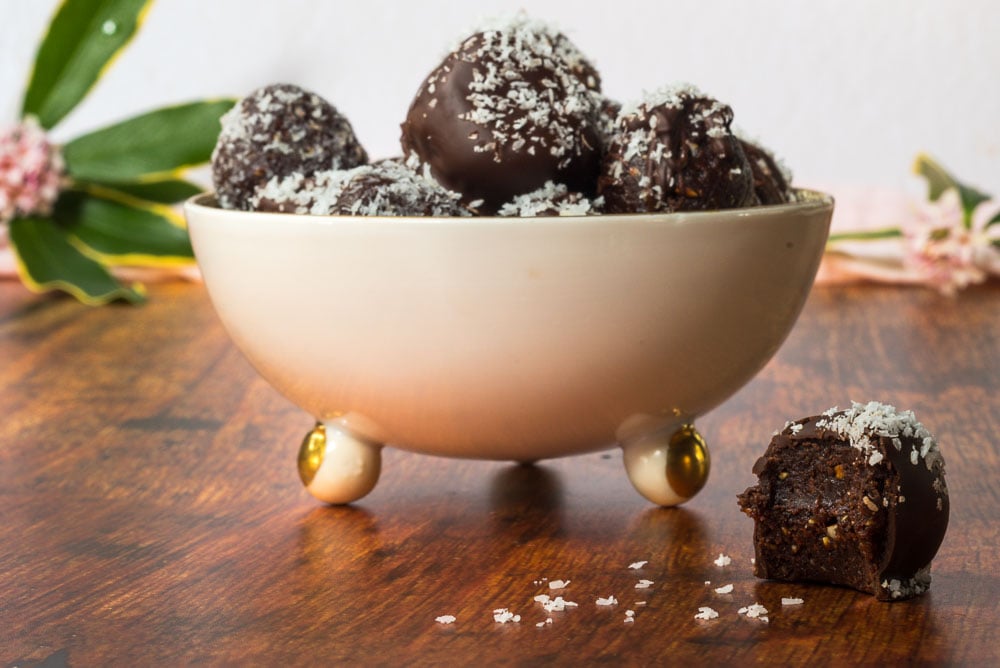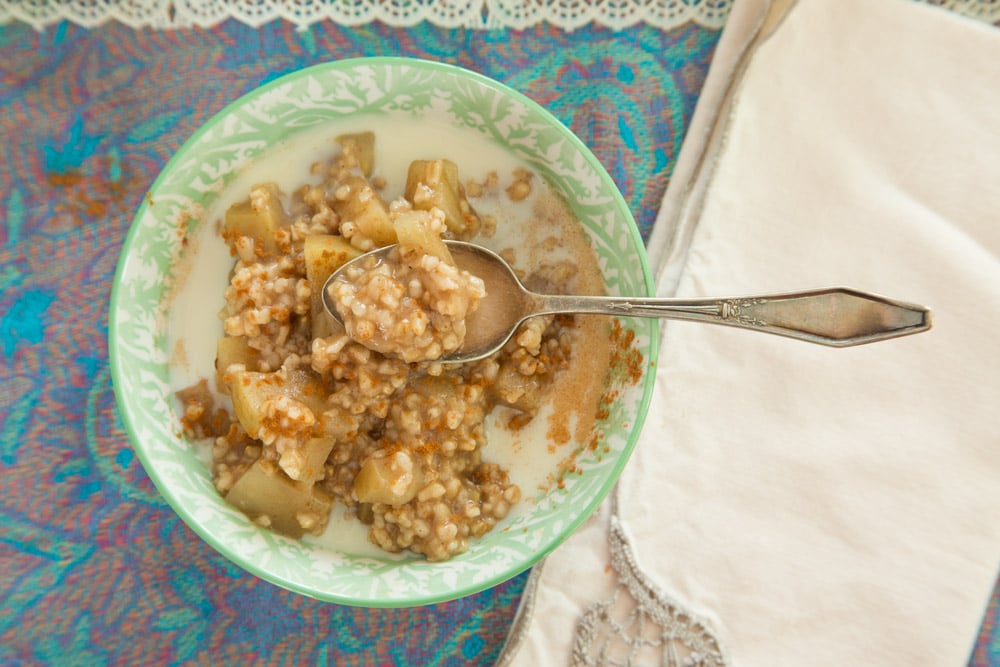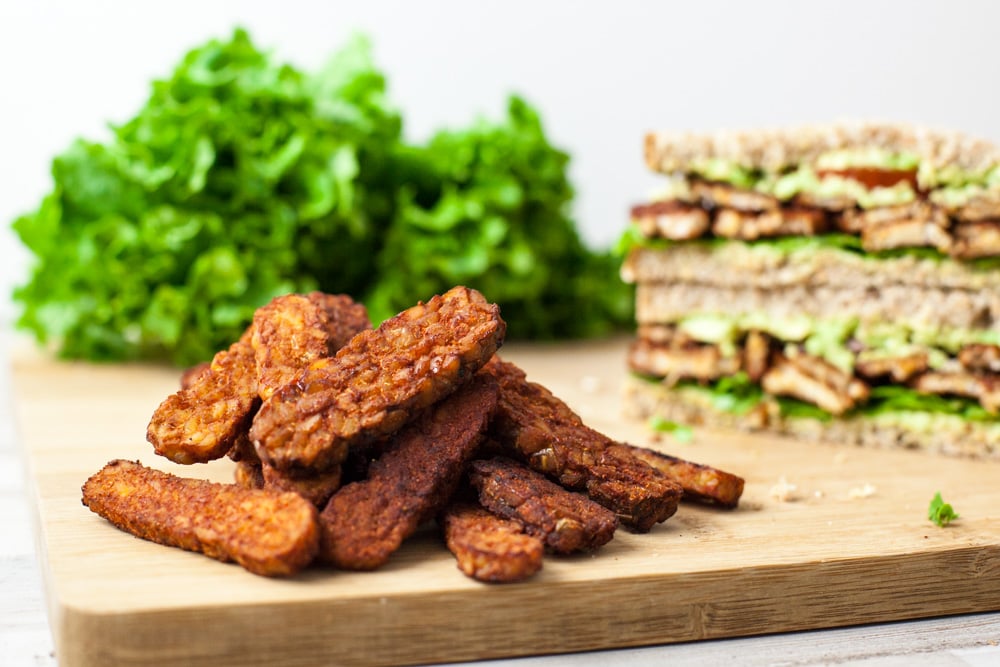Guide to Plant Based Baby-Led Weaning
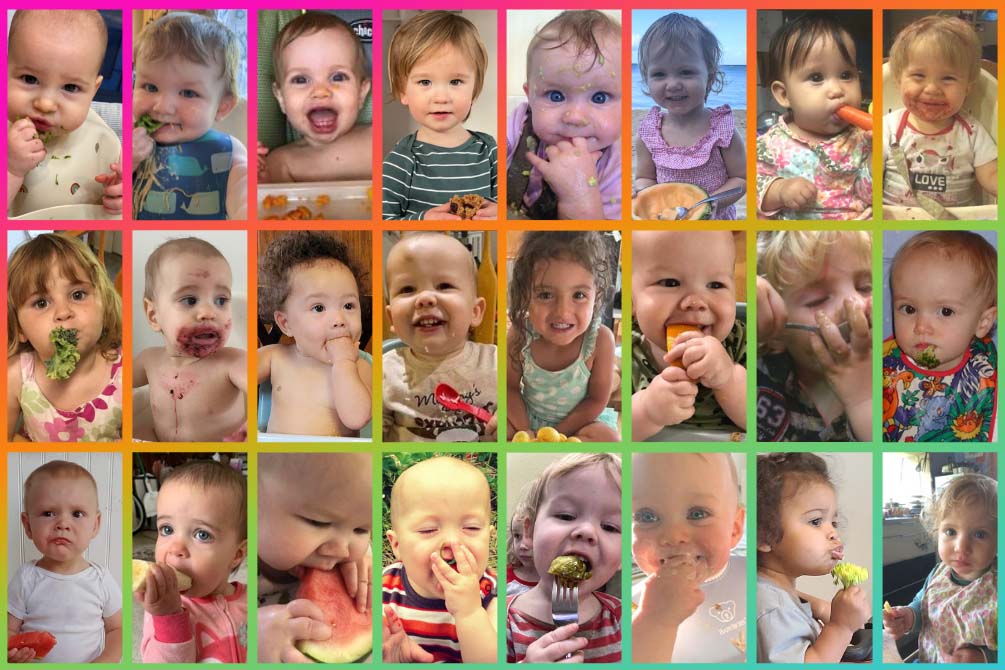
By Team Dirty
Apr 2, 2022,
By Team Dirty
Apr 2, 2022,
Baby-led weaning is a modern term for a very old weaning method that’s regaining popularity in America. Simply put, baby-led weaning centers the baby in the process of adding solid foods to their diet. We wanted to present a whole food plant based baby-led weaning guide for our plant-loving parents!
We’ve compiled best practices and tips from our Facebook group and the parents of Team Dirty to answer your questions and help you feel more confident as you and your child approach baby-led weaning. This resource is for informational purposes only and is not intended as medical advice. It’s important to research weaning practices and discuss your plans with your pediatrician before beginning baby-led weaning.

How does plant based baby-led weaning work?
Weaning, in general, is transitioning children from a liquid diet (breastmilk and/or formula) to solid foods. In America, these solid foods are typically pureed fruits and veggies for the first few months or longer. Baby-led weaning instead introduces solid foods that resemble what older children and adults eat when the baby exhibits certain developmental cues.
The World Health Organization recommends waiting until at least one year of age before weaning babies from breastmilk or formula completely. Since baby-led weaning typically begins around six months, think of it as a fun way to supplement your baby’s diet rather than it being their primary source of nutrition.
Many parents who practice baby-led weaning serve their babies the same meal they’re eating, with small modifications. Some foods are served deconstructed or only one part of the meal will be given to baby alongside fruit or veggies. After giving your baby their meal, you allow them to pick up their food and feed themselves. When practicing plant based baby-led weaning, the only difference is that the foods offered are free of animal products and highly processed ingredients.
Traditional purees aren’t necessarily a no-no when practicing baby-led weaning. They can be a good way to help you get started. You can help your baby hold and guide a spoonful of puree to baby’s mouth. Or, load the spoon up yourself but hand it over to let your baby to get it to their mouth on their own.
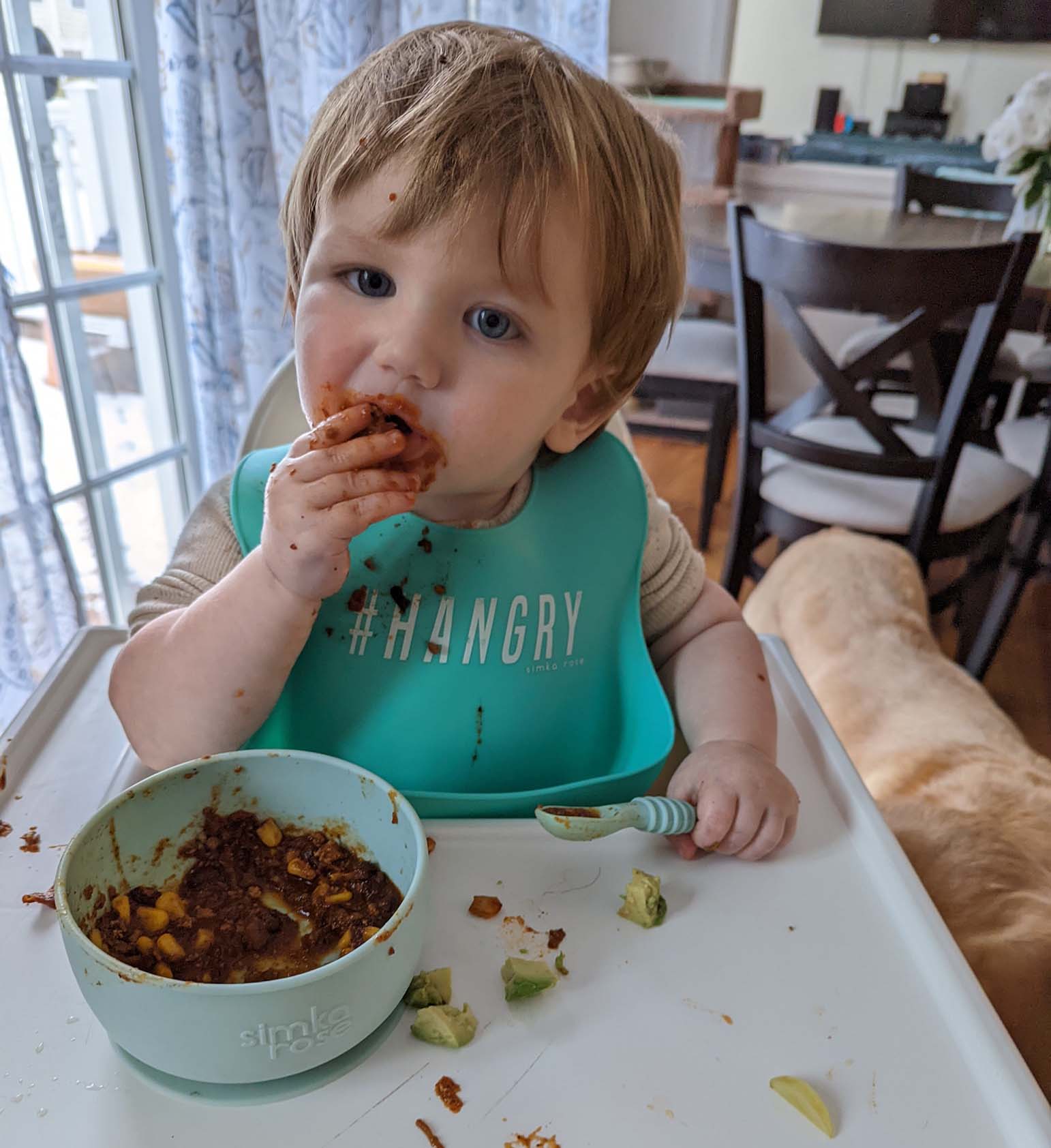
Does all this sound messy? You bet! Allowing your baby to feed themselves will result in a mess. Our advice is to accept and embrace it. The avocado-filled smiles and joy of your baby as they explore their world are worth it. Plus, you’ll get some adorable photos along the way.
Benefits of plant based baby-led weaning
So why practice baby-led weaning? Lots of reasons!
Baby eventually eats what you eat
This saves you both time and money. “Baby food” can be expensive. Feeding your baby what you’re eating is simple and easy.
Babies begin to learn about social interactions
By sitting and participating at the table with your family, babies will learn just as much about people as they will about food. Observing and interacting with others is good for their developing brain.
Helps develop fine motor skills
Spending time feeding themselves will help baby learn and grow their motor skills. This will make learning other skills like tying their shoes or writing easier later on.
Exposure to diverse and healthy foods
Being exposed to a diverse range of healthy foods at a young age can help reduce pickiness later. As babies grow into toddlers, increased selectiveness is natural, but baby-led weaning builds a foundation for good nutrition habits for life.
Less stress and decreased waste
Baby-led weaning can sound intimidating, but a few Dirty parents from our community assured us that it’s less stressful than making sure baby food is stocked. By feeding baby what you eat, you’re also reducing food and plastic/glass waste since you’ll buy little to no packaged baby food.

How to know if your baby is ready for solid foods
Following your baby’s developmental cues is one of the most important aspects of baby-led weaning. Babies will usually exhibit signs they are ready for solid foods around six months of age, but every baby is different. Developmental cues are more important than age when beginning baby-led weaning. If they’re not ready at six months, that’s okay, wait until they are. You’ll have a cute avocado-covered baby soon enough! Talking to your pediatrician can help you determine the best course for your family.
Your baby is likely ready for baby-led weaning if they:
- Can sit upright with minimal or no support
- Can reach for objects and bring them to their mouth unassisted
- Show an interest in food and watch others when they eat
- Reach for food on their own

Is plant based baby-led weaning safe and healthy?
Yes!
Babies can thrive on plant-based diets. As with anyone, there are nutritional needs to consider, but these are easily managed. Read more about nutritional considerations for plant based babies.
Baby-led weaning is not associated with a higher risk of choking. There are best practices and guidelines to help keep your baby as safe as possible. These include always having your baby seated upright and supported with constant supervision. It can help to limit distractions, as well. In general, it’s never a bad idea for parents to take an infant CPR course, whether you’re baby-led weaning or not.
Introduce only one new food at a time and be cautious of possible allergies. When and how to introduce common allergens like peanuts should be discussed with your pediatrician. Still, most doctors now recommend they’re introduced early since early exposure can lower later allergy risk.
Getting started with plant based baby-led weaning
When you and your baby are ready, we recommend starting with relatively neutral-flavored fruits and vegetables. Cut fruits and veggies into slices about the size of your pinky finger so your baby can hold and maneuver the food relatively easily. Smaller foods are okay to serve when beginning if they’re pretty soft (think peas), although your baby may have more difficulty grasping them.
Choose foods that are firm enough for babies to pick up but soft enough for them to chew and swallow without teeth. Anything too firm for baby to gum and swallow should be cooked until soft or avoided. As your baby gets a little older and motor skills improve, around eight months or so, firmer small foods can be introduced. Be sure to lightly smash (think blueberries) or cut in half or quarters to reduce the risk of choking.
Foods to avoid when starting baby-led weaning
Not every whole plant food will be suitable when beginning your baby-led weaning process.
Here’s a brief list of common foods to avoid or modify:
- Firm, round foods like berries or grapes (cut in half or quarters before serving)
- Raw very firm vegetables like carrots (steam or roast before serving)
- Peanut butter by itself (can be difficult to swallow—serve smeared on toast or fruit/veggies)
- Hard, crunchy foods like tortilla chips, popcorn, or nuts (avoid until around age four)
First foods for plant based baby
Here are some ideas for foods to get your baby’s lifelong planty love story started:
- Avocado
- Green beans, steamed
- Broccoli, cauliflower, or carrot strips, steamed
- Banana
- Mango
- Tofu, cooked (served warm or cold)
- Sweet potato wedges, cooked
- Butternut squash, parsnips, zucchini, or pumpkin, steamed or roasted

Serving your baby what you eat
With the above considerations in mind, one of the best benefits of plant based baby-led weaning is the convenience of serving your baby the same whole-food plant-based meal your family is eating.
Here are some simple tips to help you get the most of this perk:
Keep spices and seasoning in mind
Feeding your baby what you’re eating doesn’t mean you have to leave out seasonings and spices completely, but you should be mindful of how much you add. Your baby’s palate and stomach are sensitive. You can always separate your baby’s portion before seasoning and adding your favorite well-seasoned sauces!
Deconstruct more complex dishes
This isn’t always necessary, but it can be helpful for items like burgers and bowls. Your baby will be picking up their food one piece at a time. Serving your baby the individual veggies and a cut-up veggie burger patty will be more manageable for them.
It’s okay to supplement
If you want to eat something your baby won’t or can’t eat, go for it! Either serve them something they will eat or serve them only part of your meal.
Live your Clean Food Dirty Girl, baby
Our plant based meal plans and recipes are super helpful when your baby is eating the same food as you. Leave what to eat to us, and we’ll do all the planning. With the resources provided here, you can confidently feed yourself and your family plant-based weekly awesomeness.
What worked for your family when raising your beautiful baby? Do you have any tips to share? Drop them in the comments below! Is your little one beyond the baby stage? Check out this blog post: Plant Based Pediatrician, Dr. Yami Answers all your Questions.
Beginner plant-based recipes for baby
This list is far from exhaustive, but it can give you a good place to start.



Once your baby is eating like a pro, they might like these Plant Fueled life recipes that our members rave about.
Cantina Veggie Power Bowl from Takeout
Chili Glazed Tofu from Dirty Bang Bang
Loaded Veggie Pizza Fries from World of Flavor
Cheesy Artichoke Stuffed Shells from Dirty Love
Easy Peas-y Soup and Avocado Toast
Roasted Carrot Bisque and Simple Steamed Green Beans
Creamy Pumpkin Mac & Cheese
Classic Cheesy Broccoli Soup

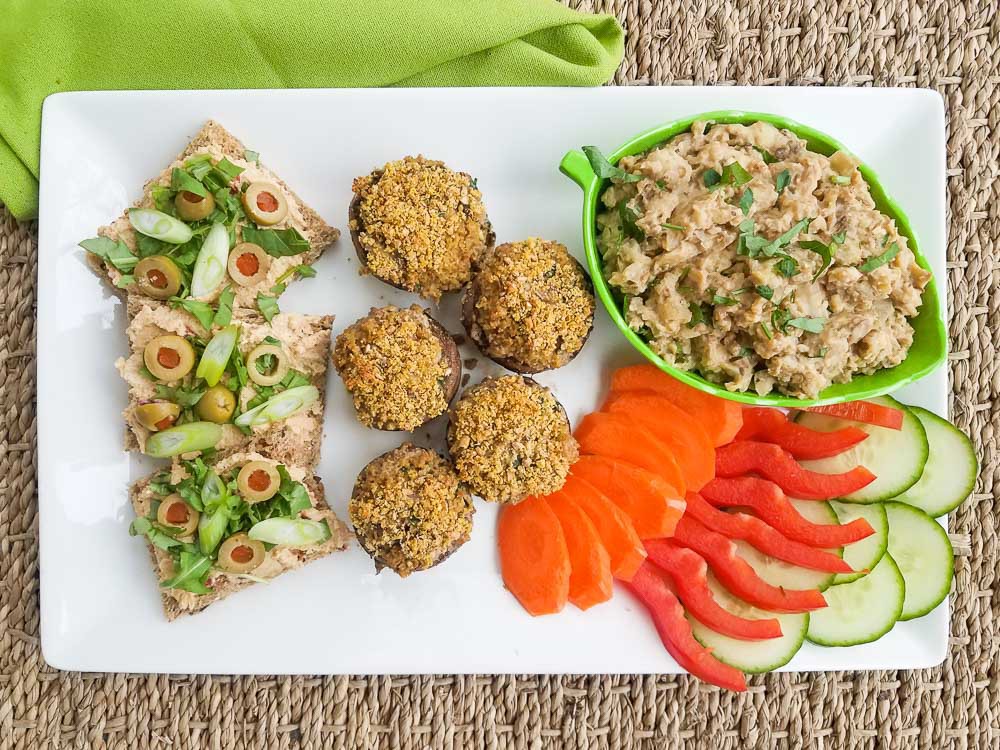
May you and your baby make beautiful memories.
Xo
Team Dirty
You may also enjoy...
Love the food that loves you back
Get instant access to thousands of plant-based recipes and meal plans, no credit card or perfection required.





